Tonight at Noon
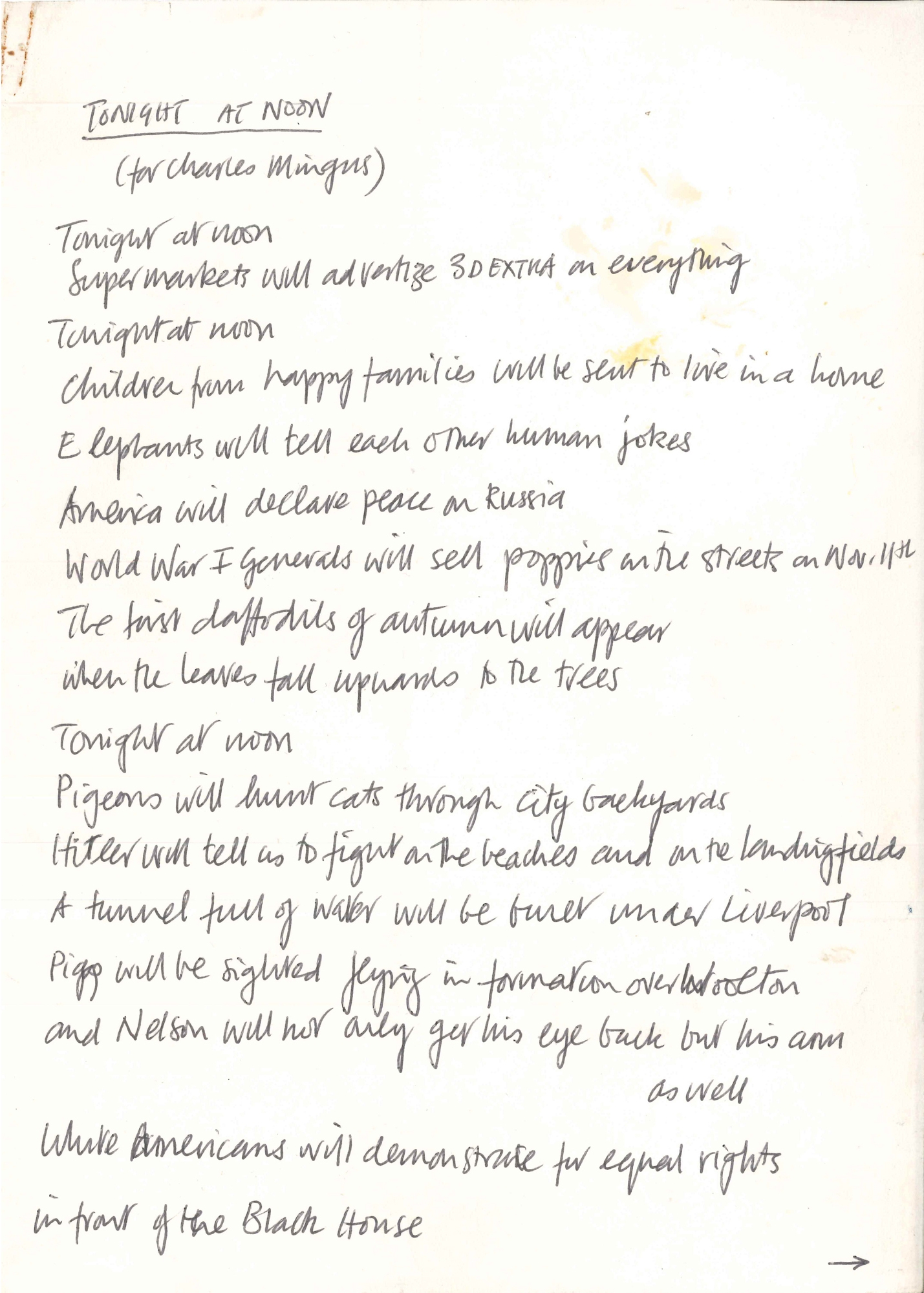
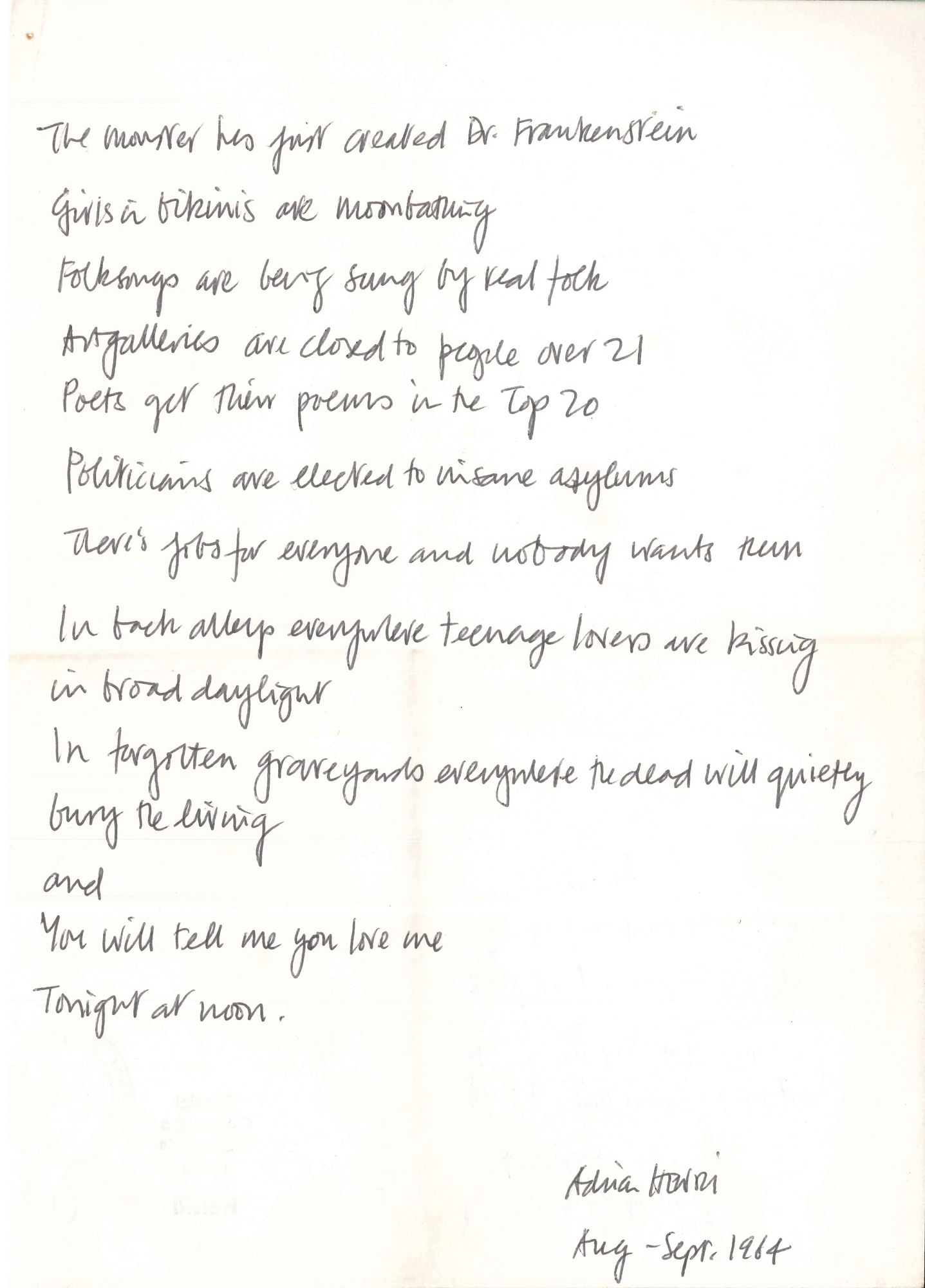


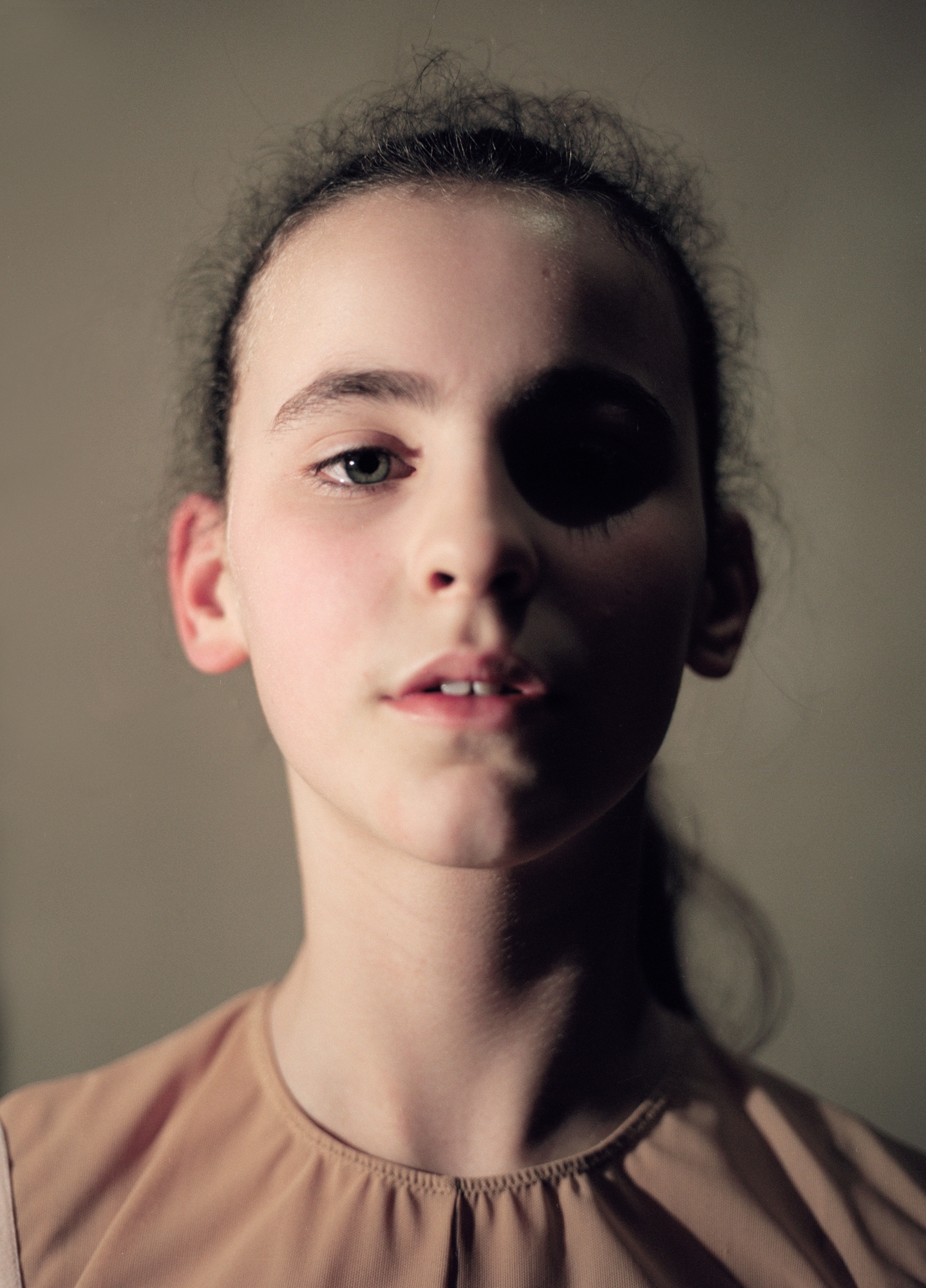

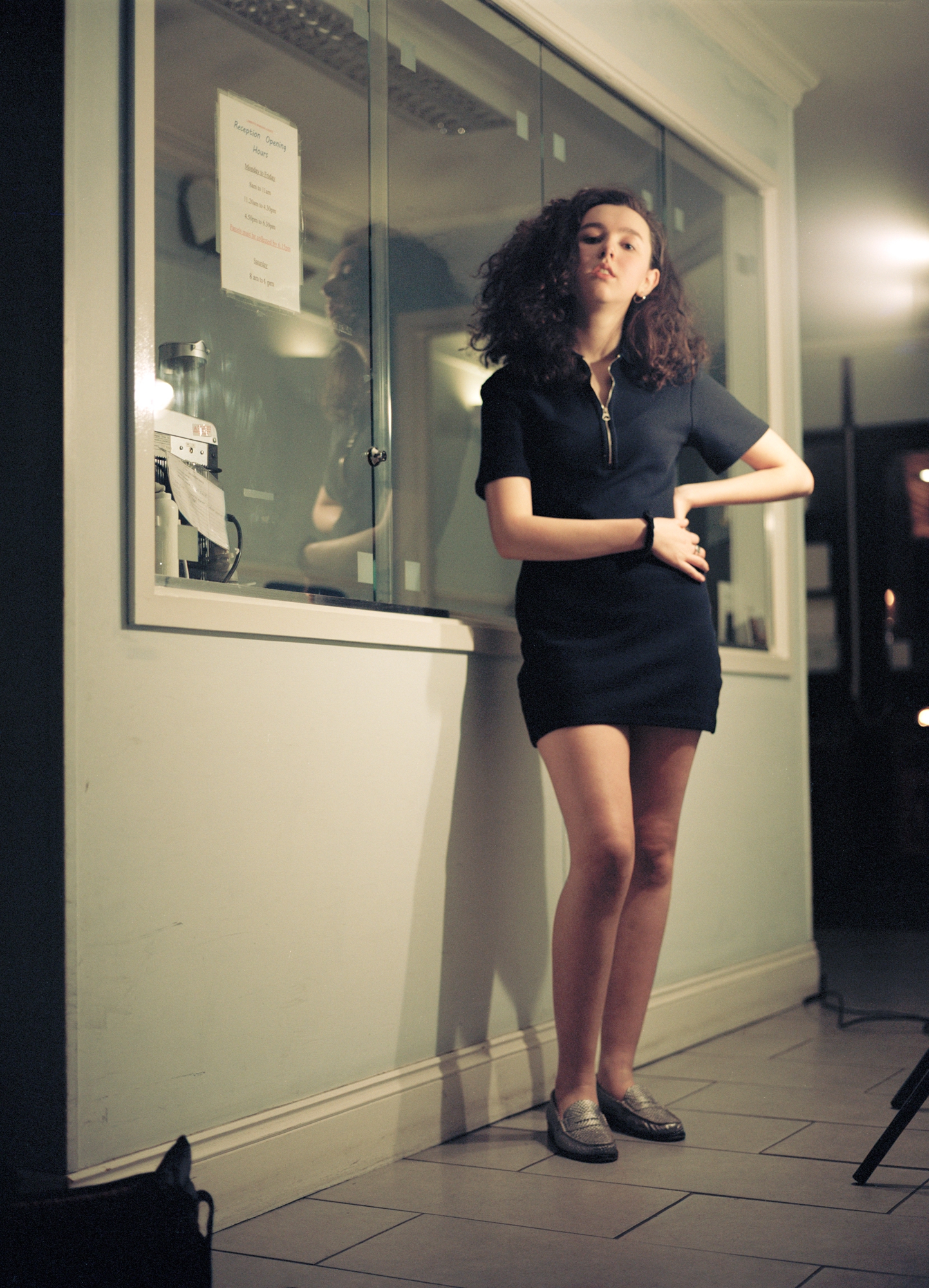



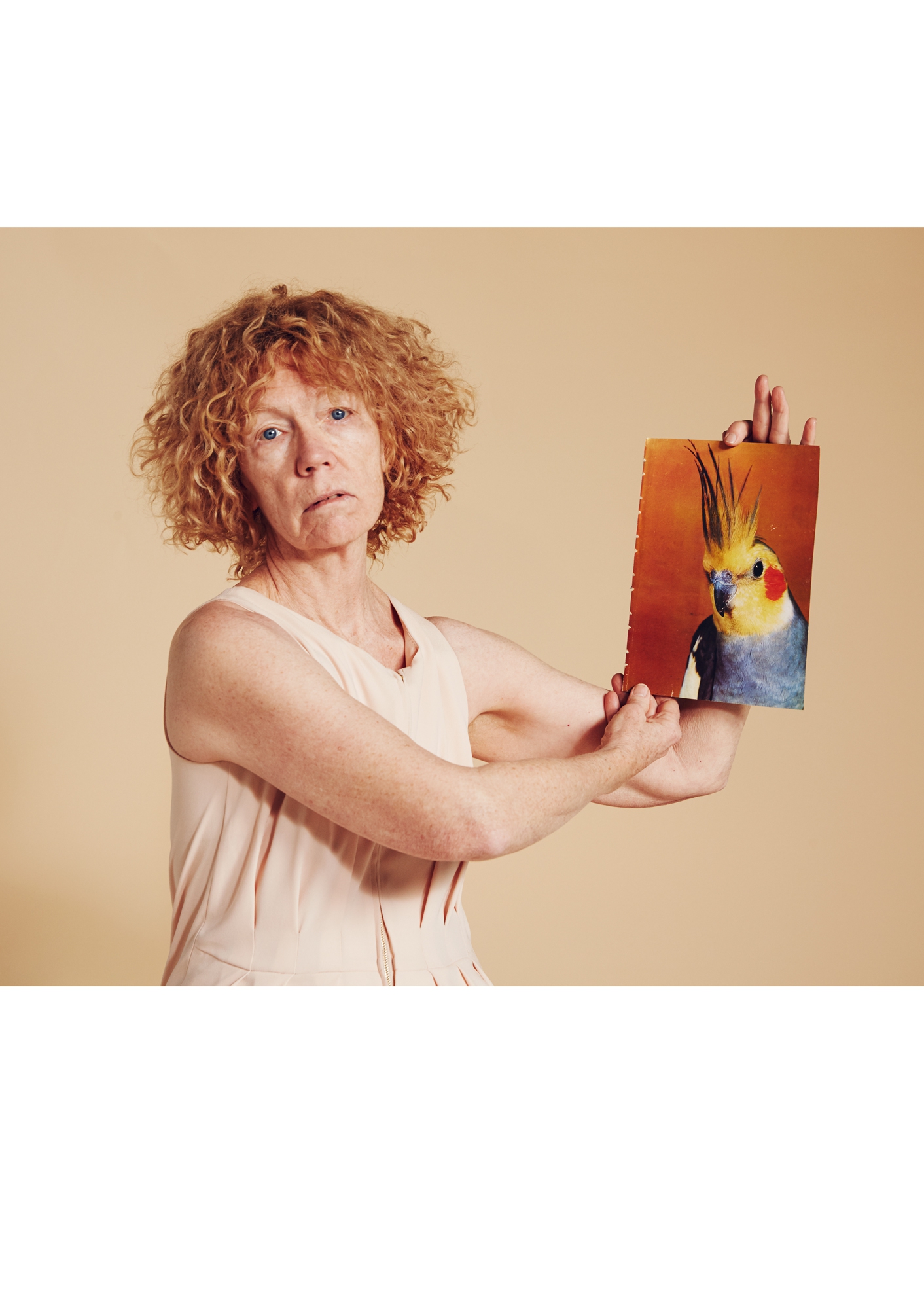
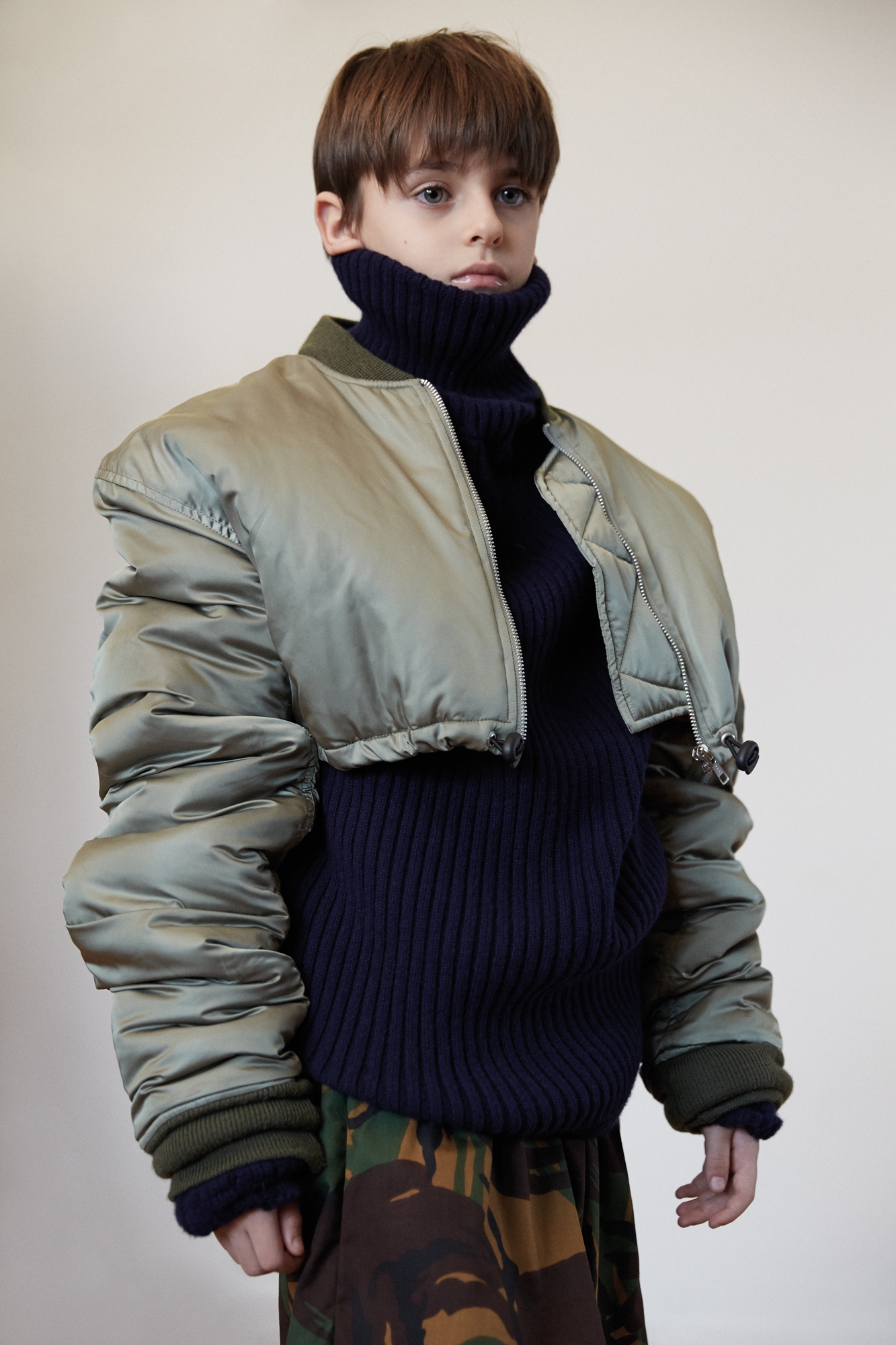

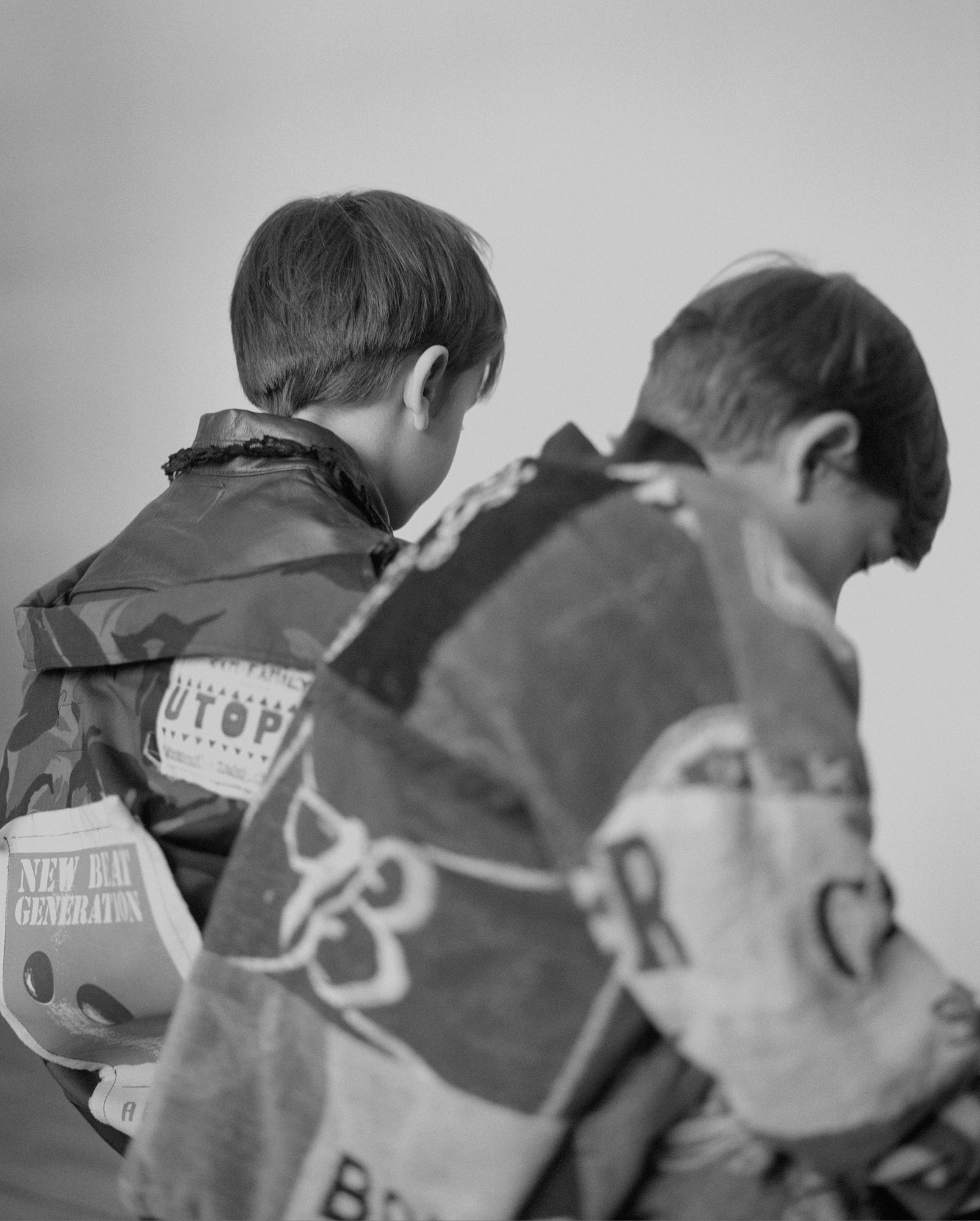
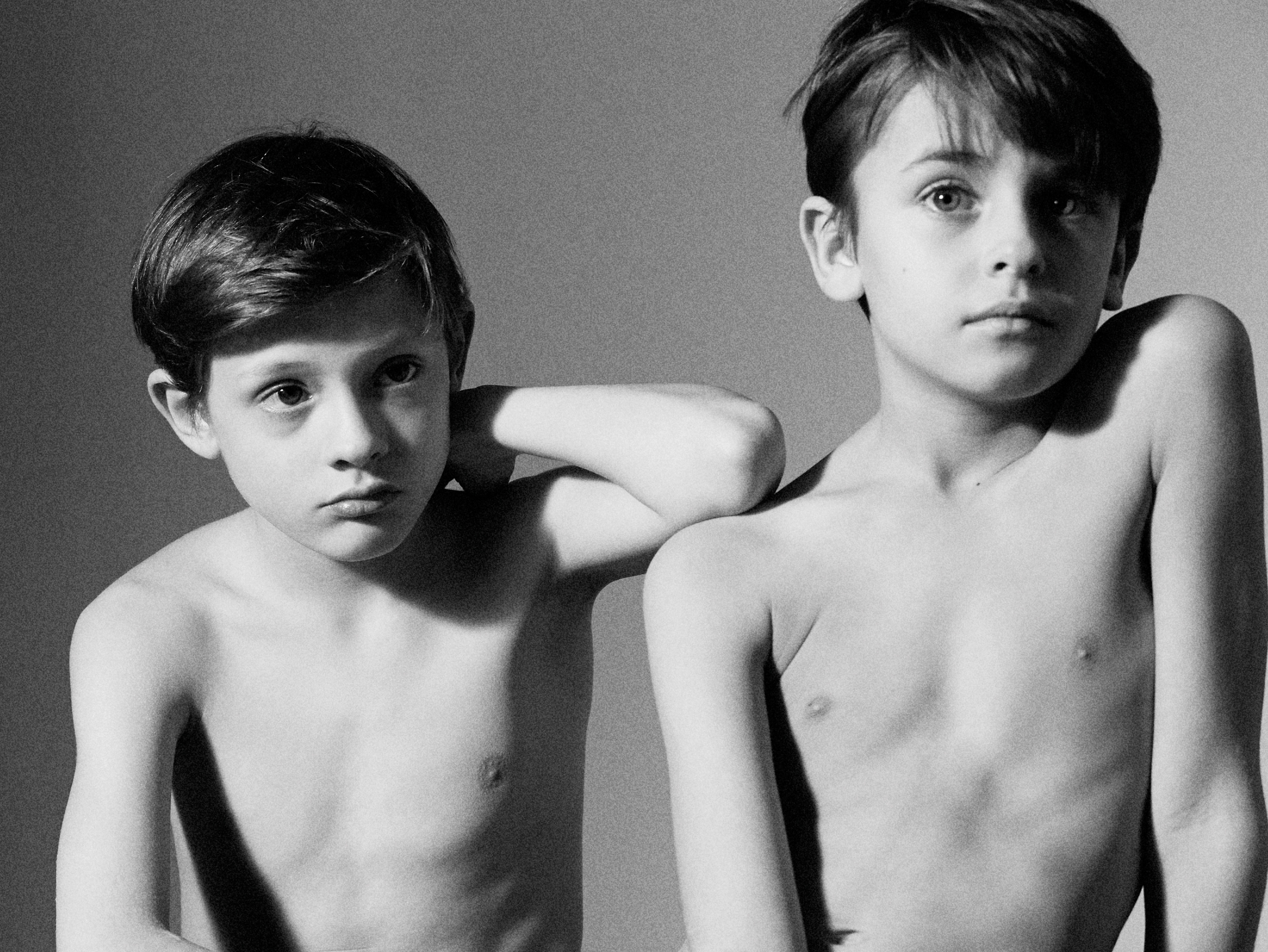


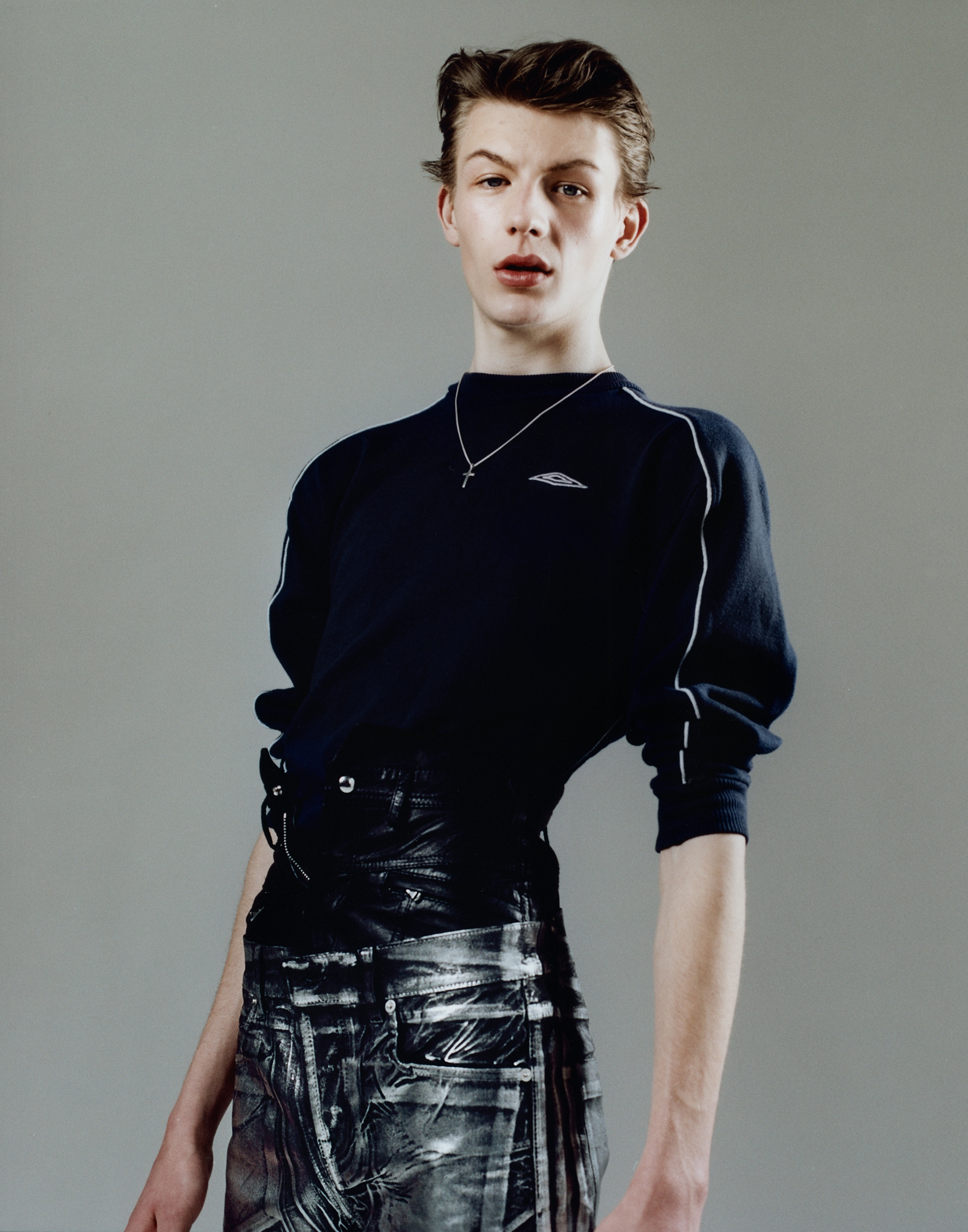












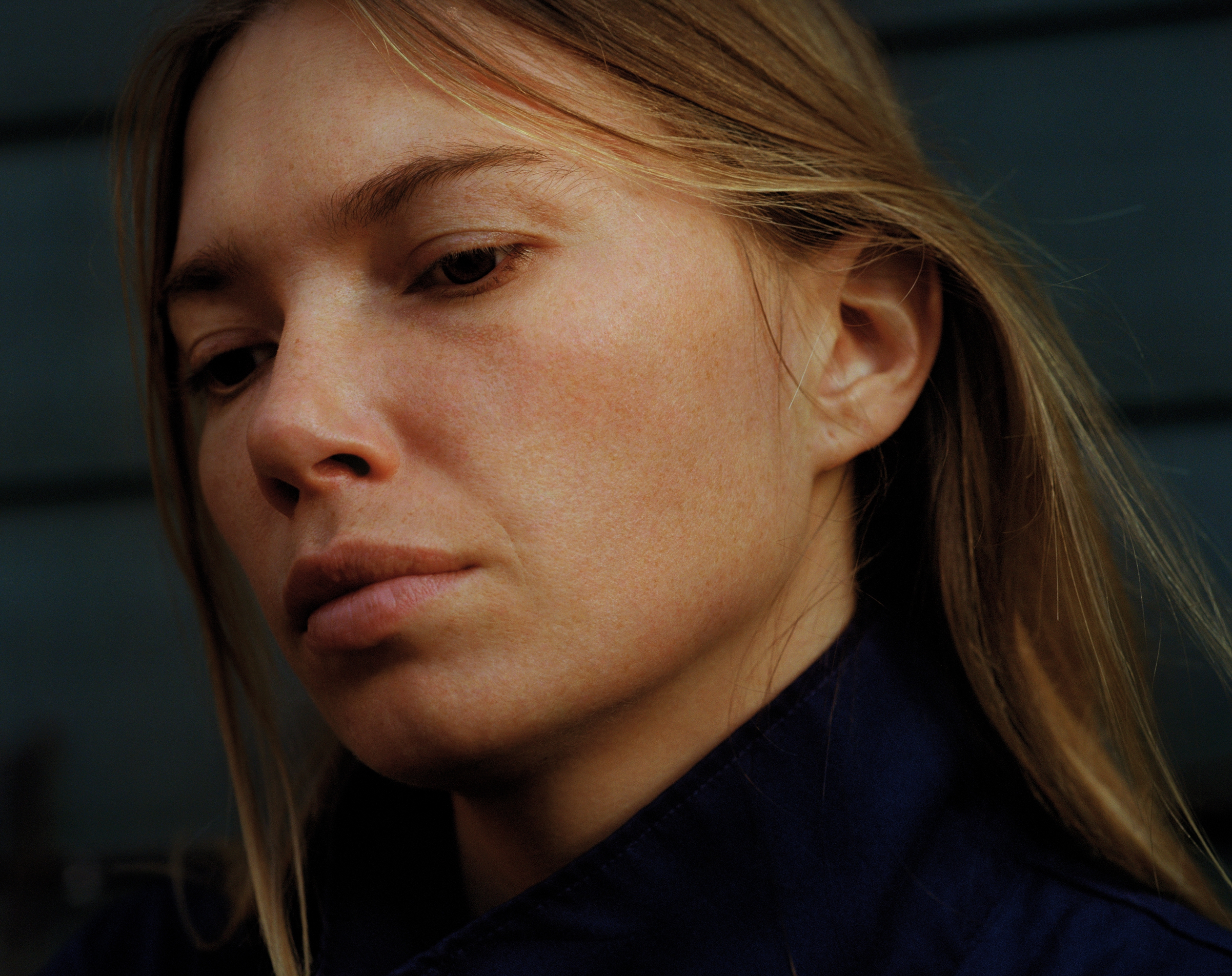
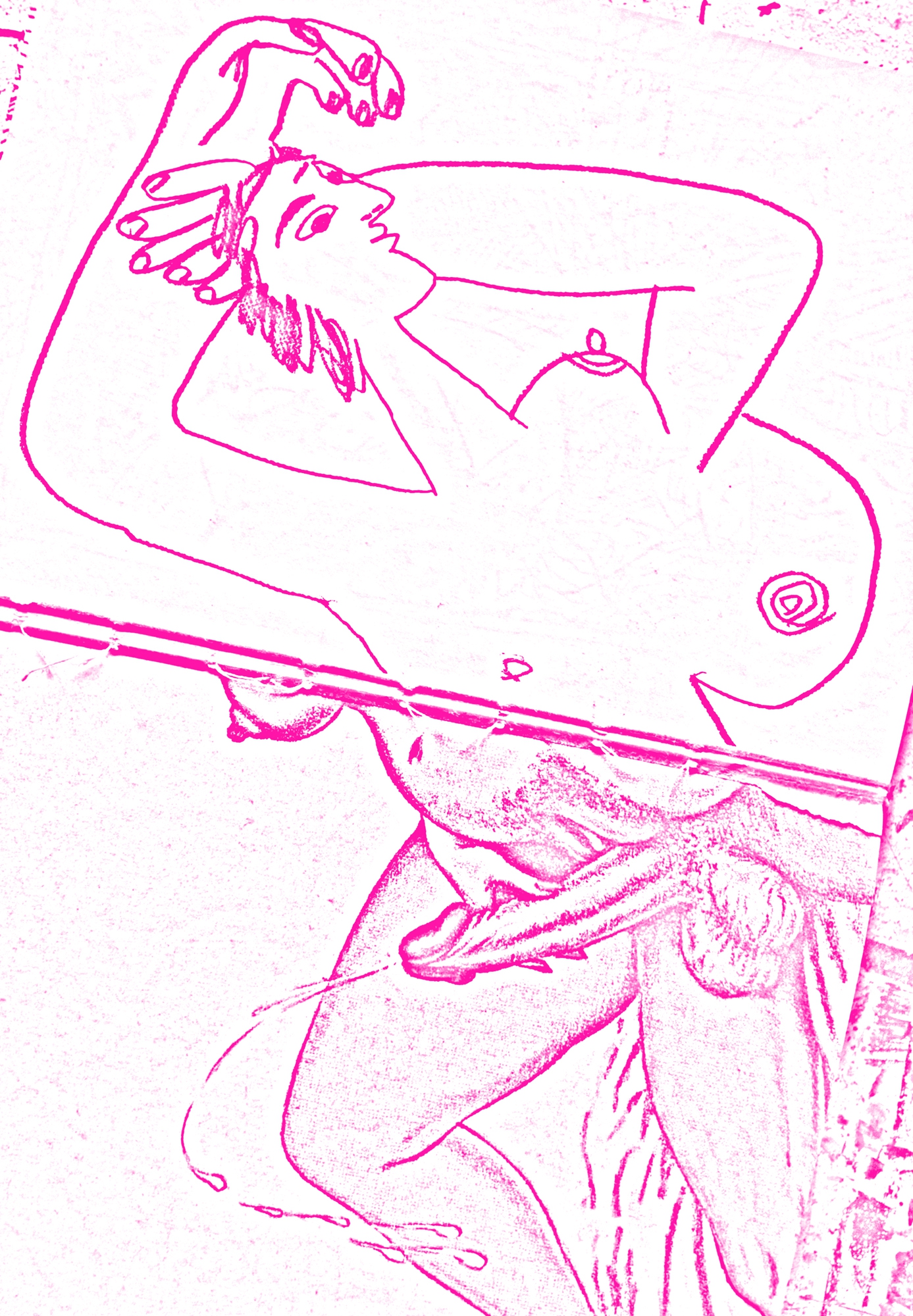
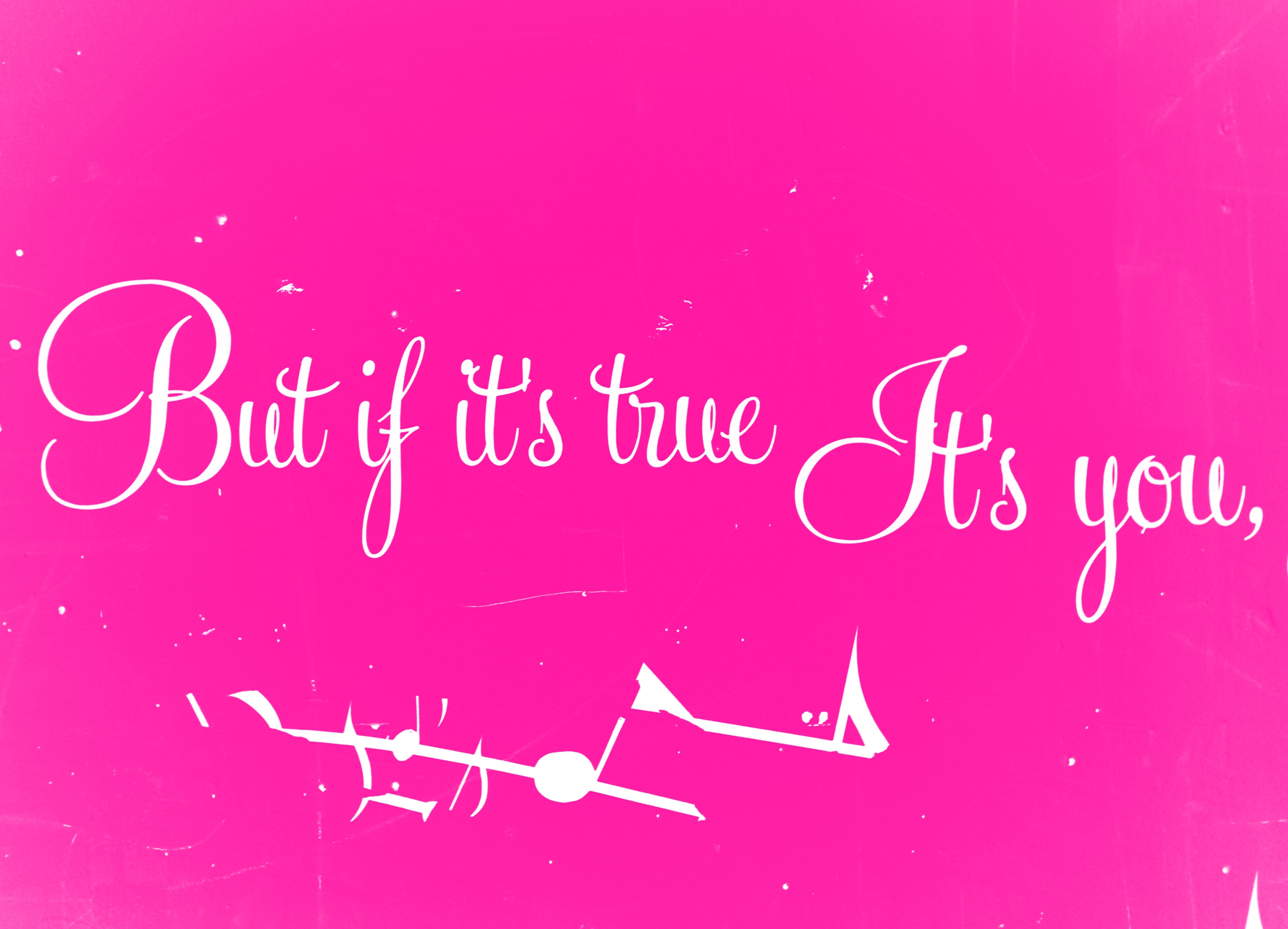

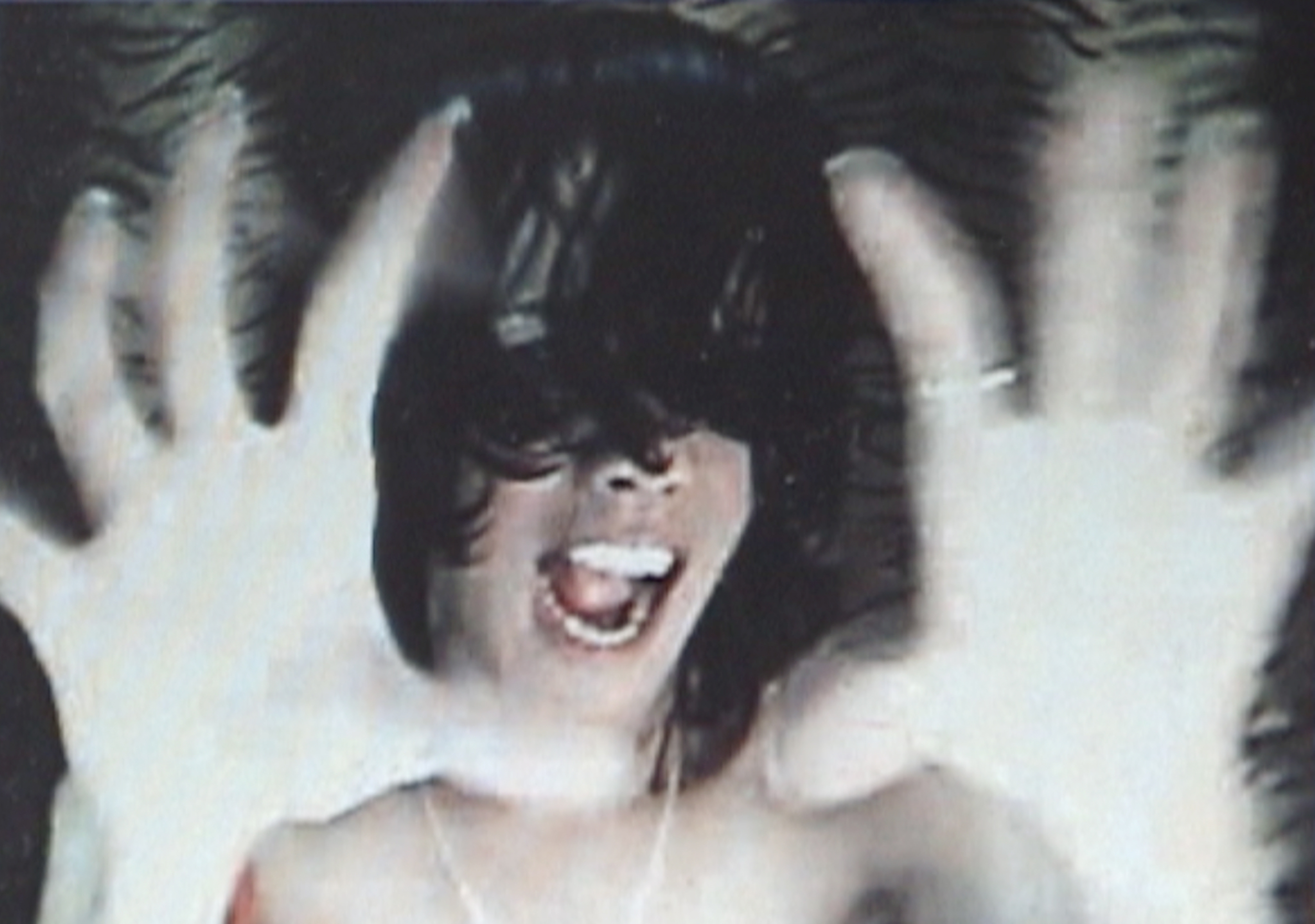
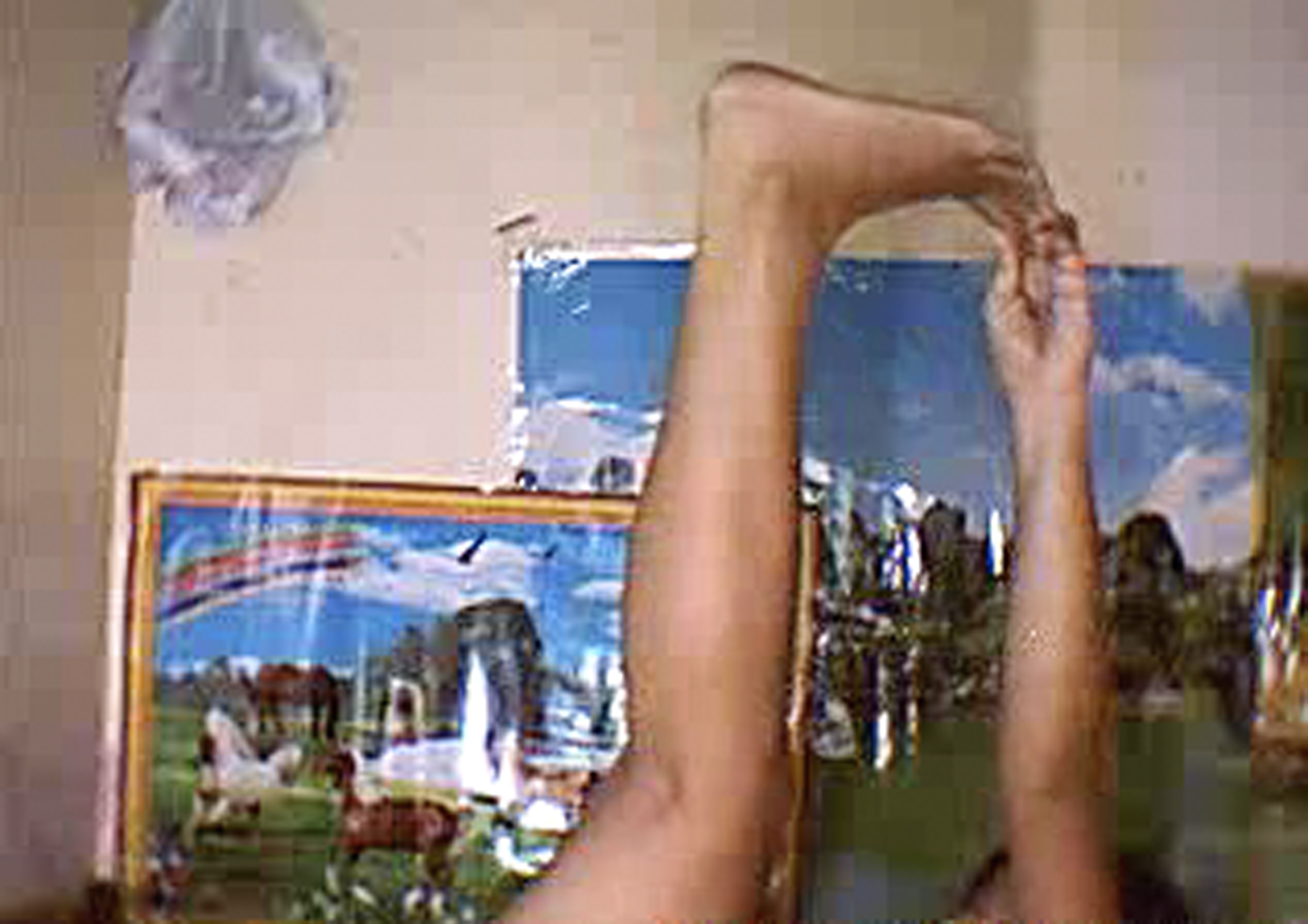

CONTACT SOUNDS
‘Hello 5409’, like birdsong, I mimicked. Deemed old enough by my parents, and allowed to answer the family phone, I baldly imitated the salutation proffered by them to our callers. Our home phone number: 0161 428 5409, melodically inscribed in memory still. I would practice a telephone voice, my accent wavering through the years, from glottal-stop Mancunian, to a softened, sanitized grammar school tone. Our family phone sat always on the kitchen windowsill, alongside the dining table where we would eat our tea. I can dimly recall a circle-fronted pulse dial, replaced later by a beige BT touchtone with a dirtying spiral cord. One by one we would sit to take or make calls, talking idly or animatedly, forcing and reshaping its wire around fingers, working out the reverse loops absentmindedly, or encasing pens within it.
FALLING IN LOVE AS AN ARTWORK
Erica Scourti
19 April 2014 at 09:28
Hi John,
Good to meet you last night and to talk about the project I’m working on. To give you a few more details: The project involves writing a text using material gleaned on me through data mining, social profiling and the advice of cyber security experts. I’ve asked them to create a profile based on what they find, and to pull out individual samples of the data they used to base their analysis on, which I would pass on to the writer to work with.
Look forward to hearing your thoughts
Best
Erica
LOVE ME LOVE BOT
Science-fictional representations of the future talk about the present, or as films like Bladerunner and Brazil do, look back to the past, imagining a future where your washing machine will always break and the synthetic clothes you wear will smell, no matter how technologically advanced society becomes. Paparazzi shots showing the mask-like face of Arnold Schwarzenegger with his joke shop cigar on the set of the latest Terminator film embody this déjà vu future; such images distort illusion and reality. Standing by a steely SUV on his cigarette break, Schwarzenegger looked more robotic on a Terminator timeout than he did in the movie trailer with his silicone eye exposed. This superficial reflection holds a mirror to our own perceptions about what is real and what is artificial, and whether the future might be radically different to the one we presently imagine. Marvin Minsky once said that human beings were ‘meat machines’. It is common to describe almost anything in mechanical terms, most extreme is the claim that the human mind is like a digital computer. The computer is no more harmful a metaphor for the brain than a science fictional account of the future is, so long as these trivial representations are not taken literally. So what are the implications of recent predictions that human intelligence will be matched, even surpassed, by artificial intelligence in a few decades? Is this just aspirational hype on the part of futurists, a souped-up science fiction? How can we look to define the differences between man, machine and what it means to made from human meat?
MISTRESS C: THE END OF THE AFFAIR
I
The young Korean doctor was sweet and gentle and explained everything. After describing which cameras would be going where, he took me behind a curtain and examined my rectum – had to lie on my side with my knees drawn up while he lubricated my anus and slid a finger in. ‘God, I miss the nineties,’ I murmured. Breathed hard and deep, and then he put a camera up there as well. R said it was awful listening to me using my breath to relax. My body was only just registering the shock.
LONGING FOR THE FUTURE
‘The consideration of the future makes us take
responsibility for our nostalgic tales.’
(Svetlana Boym)
I no longer remember how I related to Blackstreet’s exorbitant display of emotion in Don’t Leave when it charted in 1997. Between school and shooting hoops up the field, as an 11 year-old I spent as much time as humanly possible at either of two best friends’ houses, mainlining on Nickelodeon or MTV. This had its localised effects: at that age I imagined myself into music videos so, as well as reciting lyrics, I could mimic dance routines, and had specific gestures and affectations mastered that entered my daily life. Small towns like mine became Transatlantic intersections between cable-televisual African-American culture and tepid Cool Britannia.
THE HETEROSEXUAL SKIRT: PANTIRA IN LOVE EXPOSURE
Wrecked cars and wrinkled clothes are drawn with the same texture in the works of Geoff Darrow. If we may, for a moment, visualise clothing as hard and inarticulable, we will see that clothing would have resistance, an external force that acts upon the wearer. It would have the ability to displace, to restrict and to restrain the body. We assume that it is the wearer that articulates the garment, but if we swap the roles and make clothing harder than the meagre strength of bodies could bear, clothing would wear bodies more than bodies wear clothing.
JUSTICE
The question is, are things different now, or were they ever thus? The change mostly being the feedback one gets from strangers these days. The minor road-rages she witnessed on her cycle to town made her think about how different she felt when even the slightest bit distanced from the real world. On winter’s mornings she would observe drivers, through rain-spotted wound up windows, watching as they shouted obscenities from behind their controls. The recipients of this ‘wanker!’ or that ‘cunt!’ where for the most part, it seemed, totally oblivious. She knew these expletives did more than shape mouths – they were actual emitted sounds, but the door seals and road noise meant that nothing would be heard outside of their cocoons, not even by her, right alongside, waiting for the lights to change. She’d always let them pull off first; for safety’s sake.